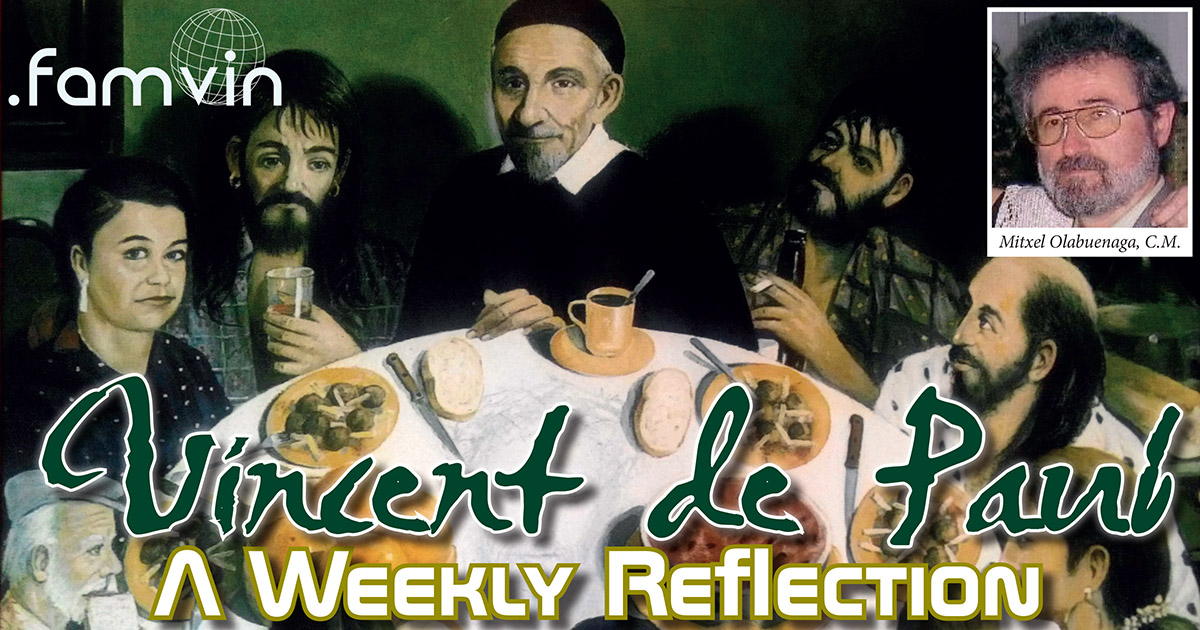“Savior of our souls, these are Your teachings we are embracing, and the devil is trying to make us abandon them. My Savior, it’s to Your advantage for us to be the victors, since we are fighting against Your enemy. Come to our aid. We protest that we’ll take up arms as long as we can. But what can we do without Your help? Lord, who, by the eternal decree You proclaimed to raise up a Company that is to make profession of imitating You, have associated us to Your mission, grant that this poor, insignificant Company of the Mission may be conformed to Your teachings, both as a body and in each of its members, that it may be filled with and grow in simplicity, humility, mortification, and zeal for the salvation of our neighbor, in order to be more and more pleasing in the eyes of Your Divine Majesty. This is the grace we humbly ask of You, Lord” (CCD XII, conference 212).
Vincent de Paul
Reflection:
- The abundant repetition of the key importance of the five virtues for the missionary can lead us to deceit, thinking that we acquire them in the Seminary and live by them, with them or in spite of them from then on. Not at all. To more perfection, more difficulty in the improvement that, in the thought of Mr. Vincent, comes from the “permanent fighting against the enemy.” Could it be otherwise? In conclusion: the desire of being virtuous is not easy.
- These five maxims (in the Daughters of Charity “reduced” to three) should not only shape the missionary’s being and action, but also the Community’s. Perhaps this is an aspect that is “taken for granted” or as “sum” of the individualities. It is not, in my view, a conclusion so evident as the sum of the individual virtues is not necessarily reflected in the Communities or in the Works of the Communities. Too often (not always right) we are accused, for example, of living poorly but our works do not reflect such poverty.
- The task, then, of individuals and communities is to “be filled with and grow in them.” Two verbs extremely explanatory of this vital “task”: “be filled” and “grow.” The first refers to “temporality,” to “patience,” to situations that, with exceptions, take time … In culinary terms we could say this action of “being filled” is like meals that must be cooked “slow roasted.” The second shows us the objective of work: “to grow,” not so much to grow “more” but to grow “better,” with quality.
- This effort to improve brings effort, sacrifice and patience. It is a vital task. “We protest that we’ll take up arms as long as we can.” A good choice but “what can we do without Your help?” That is why this prayer ends: “This is the grace we humbly ask of You, Lord.” Being virtuous (in any realm of life) is not easy. It is certainly a question of “qualities” and “training.” Being virtuous “on a personal level” is not only in our hands.
Questions for dialogue:
- Where do you think your difficulties are in transforming values into virtues?
- Do our communities reflect the Vincentian virtues?
- Do our works reflect the Vincentian virtues?
- Where do we learn to be virtuous Vincentians?
- Is the petition and thanksgiving related to this subject present in our prayers?
Mitxel Olabuenaga, C.M.
![]() Mitxel.OlabuenagaOrnes
Mitxel.OlabuenagaOrnes






0 Comments